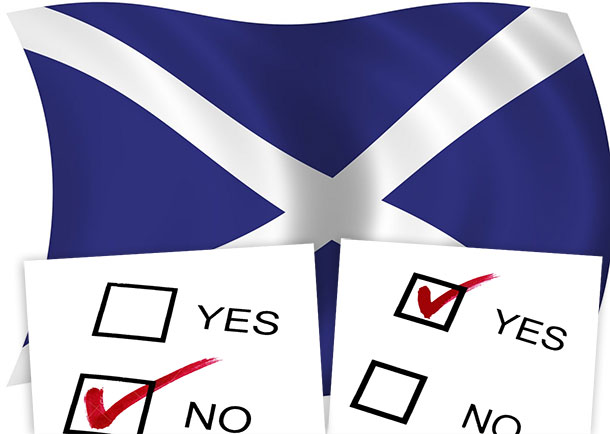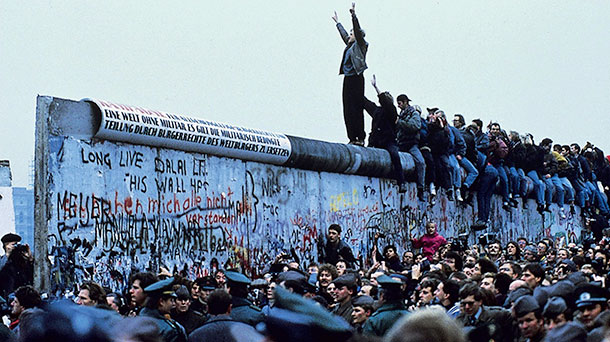2 November 2014 Edition
Border poll needs a wider canvass – By Mark Langhammer, Irish Congress of Trade Unions NI Committee member
Building an Alternative

• Would a Border poll in Ireland energise a similar mature political debate?
THE Scottish referendum has increased speculation about a Border poll here.
The Scottish campaign was mature and enthusiastic, particularly on the ‘Yes’ side. Although Scotland (like here) is socially conservative, enabling 16-year-olds to vote, combined with the ‘networked’ campaigns of Radical Independence, National Collective, the Common Weal platform, blogs like Gerry Hassan and Bella Caledonia, William McIlvanney’s ‘Dreaming Scotland’ (and others) energised politics as never before.
Exit polling suggests that, but for heavy ‘No’ returns from older voters, Scotland might now be independent.
Socialist voters ignored Labour in the Glasgow and central belt heartlands, with cuts and the NHS major factors. Essentially, 1.6million Scottish voters voted ‘Yes’ to stay the same – to retain social responsibility, social democracy and a decent, civilised, welfare safety net. The Scottish vote is best understood as a vote for social solidarity and against free market liberalism.
Would our Border poll energise a similarly mature political debate? Today, a Border poll might stimulate communal antagonism but there are two ‘live’ issues with capacity to erode traditional communal voting blocs.
One is that a Border poll would highlight the semi-detached, quarantined and unquestionably second-class nature of ‘Northern Ireland’ within the UK state. A second is the effect that a growing Ireland would have within a successful Eurozone, combined with the potential of a British exit (“Brexit”) from the EU.
Comparing our Border poll with Scotland’s is like comparing apples with bananas. Scotland is an integral part of the UK. Its votes elect real governments. It elects Cabinet ministers like Gordon Brown, Alistair Darling, George Robertson and Robin Cook, to name a recent few. Northern Ireland doesn’t. No one here casts a vote to elect (or chuck out) a UK government and no major British party seeks a mandate here.
Dr Pat Walsh’s recent book, Catastrophe, The Catholic Predicament in Northern Ireland (Athol Books, 2014), sets out clearly that the purpose of the ‘Northern Ireland’ entity was never good government but rather an imperial device to retain purchase on the whole island. And ‘unionists’ consciously rejected the British party political road long ago, adopting a ‘settler’ mentality.
Within the context of a Border poll, at least some Protestant middle-class people are bound to ask – is it full citizenship within a new Ireland? Or second-class, semi-detached, quarantined status within the UK? Don’t expect them to be happy, or to campaign. But, in the privacy of the ballot box, who knows?
Game-changer
The real game-changer is Europe.
The European Union is in decline, the practical idealism developed under Christian Democratic tutelage gone. Europe’s problems started when it dismantled its founding protectionist policies and adopted globalist, free market financial policies, at Britain’s behest. Now this is unravelling in Scotland, Catalonia, the Basque Country, Belgium, Ukraine, Moldova and elsewhere. Outwith the EU, we see rumblings of a pan-European counter-balance to Anglo-Saxon high finance.
Since the European Commission was stripped of its lead role in the 1990s, the EU has experienced decision-making paralysis. This paralysis obliged Eurozone states to make decisions by “enhanced co-operation” outside EU structures. Few people ‘get’ this.

• Berlin Wall – Germany has been preoccupied in constructing a unified German state, then the Eurozone
Notwithstanding its historic reticence and disabling war guilt, Germany has reluctantly asserted its place as Europe’s most powerful nation. It moved decisively with France to keep Britain ‘out of the room’ to save the currency – a conscious effort to rebut the traditional, disruptive British ‘balancing powers’ instinct. And these days, where Germany and France lead, Ireland follows.
True, Germany doesn’t relish transferring subsidies to less-efficient southern economies. It doesn’t concede that German Eurozone trade benefits from the inability of other countries to competitively devalue. A weak euro helps German exports outside the Eurozone. Yet, in defending the euro, Germany has proposed a fiscal compact, an outcome which may see a northern European budgetary and taxation area.
Since communism collapsed, Germany has been preoccupied in constructing a unified German state, then the Eurozone. It now confronts choices it hasn’t faced for 70 years. Germany remains a vibrant manufacturer, producing huge annual trade surpluses. Its vocational education and apprenticeship system is without parallel. German domestic banking remains utilitarian and German society is culturally resistant to consumer or state debt. Germany nowadays resembles a mercantilist economy in the midst of a free trade area.
So let’s imagine that the German domestic banking model prevails throughout the Eurozone. Imagine a Financial Transaction Tax and a European ban on derivative financial products. Imagine the separation of investment from savings banks, with state aid for banks only in return for public shareholding and ‘co-determination’. What odds then for a German-led Europe seeking an alternative to finance capitalist austerity? The jury’s out but the noises are getting more positive.
Then imagine a United Kingdom set on “Brexit”. Not that the EU matters much, since all the ‘action’ is within the Eurozone fiscal compact. Ireland at the heart of a German-led Eurozone versus an isolated, unproductive UK, shrinking as a financial centre and reliant on ever-more mendacious speculation?
In my book, that would be a choice worth having a referendum on.
Mark Langhammer is an Elected member ICTU Northern Ireland Committee. Writing in personal capacity




